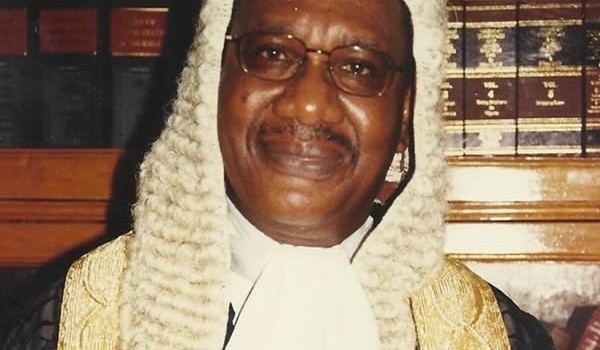
President Muhammadu Buhari has set up a a seven-member presidential advisory committee to advise him on his roadmap to tackle corruption.
Buhari who rode to office on a popular mantra of “Change”, vowed to fight corruption during his electioneering campaign.
The seven-member Presidential Advisory Committee on Anti-Corruption mostly comprises of academics.
Advertisement
They are Professor Femi Odekunle, a professor of Criminology at the Ahmadu Bello University; Dr. (Mrs) Benedicta Daudu of the University of Jos; Professor Etannibi Alamika, a professor of Criminology and Sociology from the University of Jos; and Professor Sadia Radda also a professor of Criminology.
Others are Professor Itse Sagay (SAN), a professor of Law and a fierce commentator on national issues; Professor Bolaji Owasanoye, also a professor of Law at the Nigerian Institute of Advanced Legal Studies; and Mrs. Hadiza Bala Usman.
Professor Odekunle is a 1968 graduate of the University of Ibadan and bagged his Ph.D. in sociology and social psychiatry from the University of Pennsylvania, Philadelphia, in the United States in 1974.
He taught at the Ahmadu Bello University (ABU) Zaria, Kaduna State, from 1970 to early 1990. In 1994, he was appointed Chairman, Advisory Committee to Chief of General Staff (CGS), General Oladipo Diya, on Socio-Political and Economic Matters.
Advertisement
Known as an avid opponent of corruption, Odekunle organised the first Anti-corruption Conference in Nigeria in 1987 bringing together not only people in government but petty traders on the streets to address the issue.
He is the author of Fighting Corruption and Organised Crime in Nigeria.
Etannibi Alemika is a professor of Criminology and Sociology of Law, specialising in criminology, sociology of law, criminal justice reform, policy and practice, and security governance.
He holds BSc and MSc degrees in Sociology from the University of Ibadan, and an MSc and PhD in Criminology from the Department of Social System Sciences, Wharton Business School at the University of Pennsylvania.
He is a board member of several professional and academic organisations, including CLEEN Foundation in Nigeria; African Civilian Policing Oversight Forum (APCOF); and Altus Global Alliance, and a member of the American Society of Criminology and Academy of Criminal Justice Sciences.
Owasanoye is an erudite Professor of Law. He graduated from the University of Ife, Ile-lfe in 1984 with an LL.B (Hons) Upper Division and was called to the Bar in Nigeria in 1985.
Advertisement
He obtained an LL.M from the University of Lagos in 1987 and holds the following certificates: Legal Aspects of Debt and Financial Management from the United Nations Institute for Training and Research (UNITAR) (1991); Legislative Drafting from the Royal Institute of Public Administration in the UK and the Nigerian Institute of Advanced Legal Studies 1992; and Negotiation of international Trade Agreements from the International Law Institute, Washington.
Sagay is a distinguished legal scholar, a professor of Law and human rights activist, and a former Dean of the Faculty of Law, University of Benin.
He is a constitutional law expert and a Senior Advocate of Nigeria (SAN). A prolific writer, Sagay has written many books and countless articles.
Although the inclusion of Mrs. Hadiza Bala Usman, a former #BringBackOurGirls campaigner who was appointed Chief Of Staff to Kaduna State Governor, Nasir El-Rifai, has raised eyebrows in many quarters.
Some deemed Mrs Usman’s appointment as unnecessary considering that no member of Nigerian Judiciary made the list.
“The committee’s brief is to advise the present administration on the prosecution of the war against corruption and the implementation of required reforms in Nigeria’s criminal justice system,” said the president’s spokesman, Femi Adesina.
Advertisement
Details of when the committee would report back to the president with its findings and recommendations is still unknown. Corruption and mismanagement of public funds have been entrenched in Nigeria’s political system for decades.
(Articles from Reuters and THISDAY was used in filing this report)


